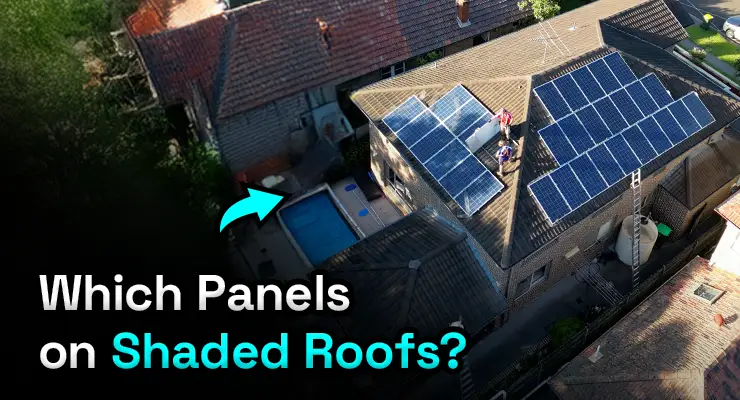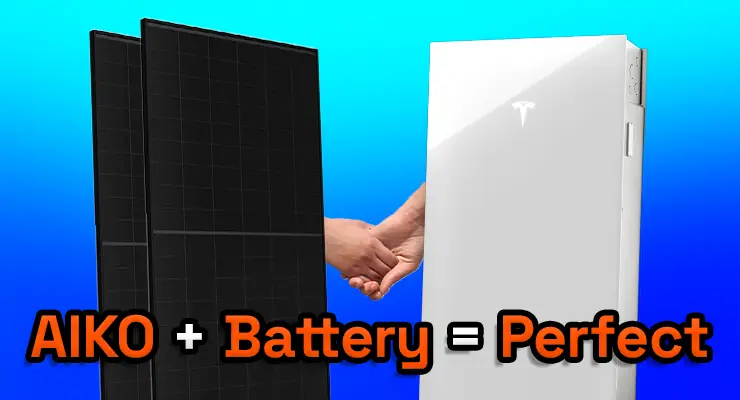Fast read
Solar panels are increasingly popular for homes and businesses, offering a cleaner alternative to fossil fuels. While the production process involves mining and toxic chemicals, ongoing improvements are making it greener. Solar panels generate clean energy without emitting greenhouse gases, significantly reducing pollution and our reliance on fossil fuels.
They also bring electricity to remote and underserved communities, improving living conditions, education, and healthcare. Despite some environmental challenges in production, the benefits of solar energy far outweigh the issues.
Solar panels are becoming more important as we work towards a sustainable future. This is due to advancements in renewable energy. These advancements are helping us create a more eco-friendly world.
Are Solar Panels Good for the Environment?
Solar energy is being used more than ever before, both in businesses and homes. Solar panels are becoming a popular renewable source of energy worldwide. This raises the question: Are solar panels sustainable? The short and simple answer is both yes and no. Let’s delve into this topic in more detail.
The Benefits of Solar Energy
Solar energy technology harnesses the abundant energy provided by the sun to produce electricity for our homes and businesses. This technology is propelling us towards a sustainable future, but it isn’t entirely foolproof yet. When compared to traditional energy sources like fossil fuels and oil, the use of solar panels is undeniably better for the environment. However, there are nuances to consider regarding the sustainability of solar panels.
The Environmental Impact of Solar Panel Production
Solar panels help us use renewable energy, but making them isn’t completely green. First, materials like silicon, silver, and aluminium are mined. Mining can be dangerous for workers and harm the environment.
After mining, these materials need to be cleaned and processed. This step uses a lot of energy and toxic chemicals, which can create harmful waste. Even with these problems, solar panels are still much better for the environment than fossil fuels, which cause a lot of air pollution.
The good news is that many people are working on making solar panels greener. Scientists and engineers are finding ways to use fewer toxic chemicals and produce less waste. They are also developing new ways to recycle old solar panels, so we need fewer new materials.
As the solar industry grows, these improvements are important. They help make sure that using solar energy is good for the planet.
In short, while making solar panels has some environmental issues, ongoing improvements are making the process greener. Solar energy has a bright renewable energy future as a better alternative to fossil fuels.
Comparing Solar Panels to Fossil Fuels
Even though making solar panels has some challenges, they help us rely less on fossil fuels, which is essential for sustainability. Fossil fuels are cheap and easy to get but have serious environmental costs. When we extract and burn fossil fuels, they release greenhouse gases and pollutants that cause climate change and harm the environment.
In contrast, once solar panels are installed, they generate clean energy without producing greenhouse gases. This significant decrease in pollution and carbon footprint is a key reason to use solar energy. Solar panels use the sun’s power to make electricity, so they don’t rely on limited resources and don’t create harmful emissions.
As more people use solar energy, we will see less overall pollution and a better impact on the environment. Solar panels can lead to cleaner air, fewer greenhouse gas emissions, and slower climate change. They also help us depend less on non-forms of renewable energy sources, making our energy system more sustainable.

The Social Sustainability of Solar Energy
Solar panels help the environment and improve people’s lives. In rural and remote areas, it can be hard to get electricity. Solar panels can provide power to these places, giving them hot water, lights, and other basics they need.
Solar panels also help poor communities by giving them electricity. This improves their living conditions and helps with education, healthcare, and businesses. With electricity, schools, hospitals, and small businesses can do better.
By bringing electricity to places that need it, solar panels make life fairer and better for everyone. They help both the environment and people’s daily lives, making solar energy a great choice for a better future.
Are Solar Panels Sustainable?
When we discuss sustainability, solar panels do have some challenges, mostly because of how they are made. The production process isn’t perfect and can impact the environment. However, solar panels are still an amazing renewable energy technology that is helping us move towards a more renewable world.
Solar technology is always getting better. Scientists and engineers are working hard to solve the current issues with making solar panels. They are finding new ways to make the production process more energy-efficient and less harmful to the environment. As research continues, we can expect to see these improvements come to life.
With better production methods, solar panels will become even more sustainable. This means they will be made in ways that use fewer toxic chemicals, create less waste, and use less energy. These advancements will help make solar panels a cleaner and greener option for producing energy.
Solar panels are already providing clean energy without releasing greenhouse gases once they are installed. They are helping to reduce pollution and our reliance on fossil fuels, which is crucial for fighting climate change. As solar technology improves, its positive impact on the environment will only grow.
Conclusion
Solar panels are a significant advancement towards using less fossil fuels and reducing pollution. Even though making solar panels isn’t completely green right now, there are lots of new ideas and improvements happening. Solar panels give us clean, renewable energy that helps the environment and benefits people.
The technology behind solar panels is always getting better. These improvements mean solar panels will become even more eco-friendly over time. This is important because it means we can use solar energy without harming the planet too much.
Besides helping the environment, solar panels also improve people’s lives. They can bring electricity to remote and underserved communities that often don’t have reliable power. With electricity, these communities can have better living conditions, education, healthcare, and local businesses.
In the broader context of sustainability, solar panels are a beneficial and essential advancement. They help reduce pollution and support social and economic growth. Switching to solar energy is a key step towards a cleaner, more sustainable future.
In conclusion, solar panels are great for the environment and society. Despite some challenges in making them, the benefits of solar energy far outweigh these issues. With ongoing improvements, solar panels will become an even more important part of our renewable energy landscape, leading us towards a sustainable future.



